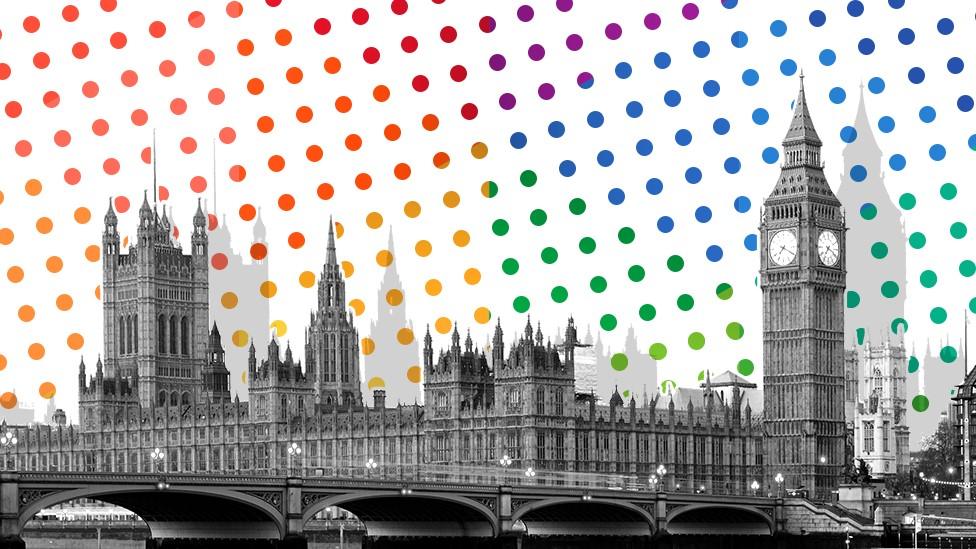General election 2019: New citizens mull first-time votes
- Published
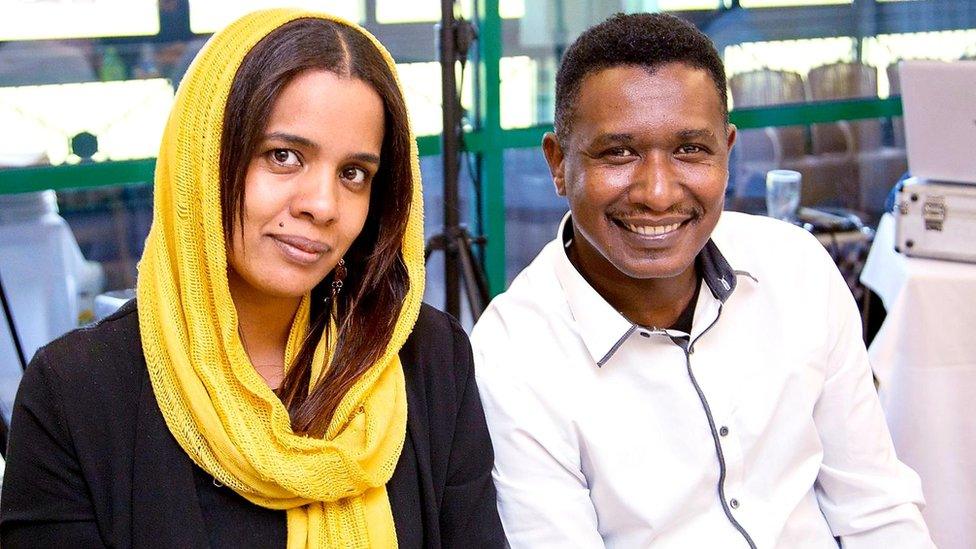
Ali Elmubarak became a British citizen last year and his wife Misaa Osman got her citizenship last week
People will go to the polls next week for the UK's third general election in five years. Among them will be tens of thousands of new British citizens - and for some it will be the first time they have voted in their lives.
Since the last election in May 2017 more than 300,000 people have been granted British citizenship and, for many, it was the culmination of years of preparation and bills of thousands of pounds.
BBC News spoke to four new citizens voting in their first general election about how it feels to finally have a say in the affairs of the country they now call home.

'First vote in my life'
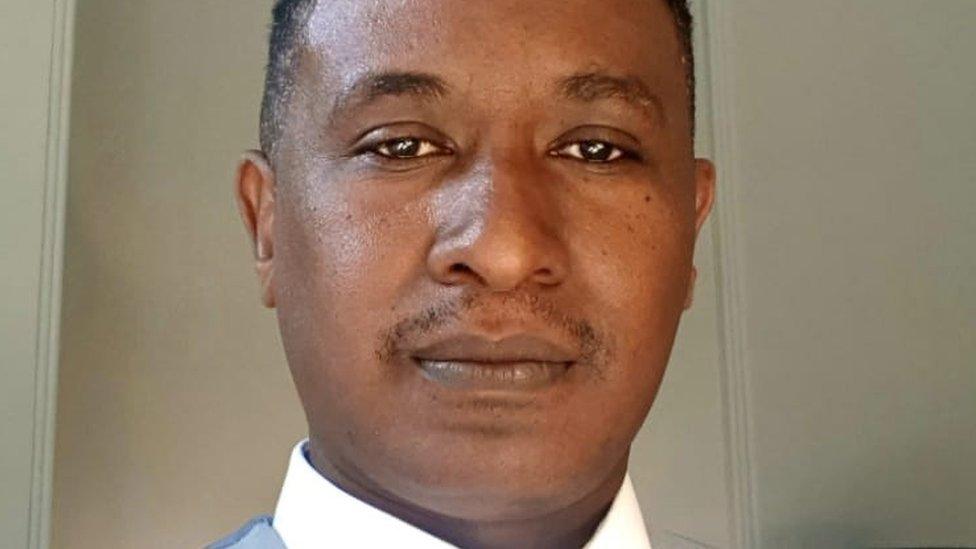
Political refugee Ali Elmubarak became a British citizen in June 2018 after fleeing Sudan in 2008. He now lives in Bristol with his wife, Misaa Osman, and three children.
He will be voting. Not just his first in the UK, but anywhere.
"It's my first vote in my life because my country was dominated by a dictator and I was young when they ruled the country - so this is the first time in my life ever," he said.
Mr Elmubarak said he was a prominent critic of the ruling Muslim Brotherhood party and sentenced to 20 years in prison in Sudan, but managed to flee.
"For 32 years no-one could vote. So I am testing it now."
Before he left Sudan Mr Elmubarak worked in the media and had his own company, making documentary films and advertising. Since moving to the UK, he has worked as a cleaner and now works in security.
Speaking about the UK's electoral process, Mr Elmubarak said: "I think it's fair because most things are chosen by the people, add to that they've got their freedom.
"In Africa there are military surrounding the voting box so no-one can cheat, but here you have privacy."
Being able to vote, he said, was "very important because people should be able to make changes by their opinion".
"In the UK you don't have to feel scared about voting as the stronger party doesn't push you with weapons to vote for them," he added.
"Also here there are many parties and you're free to vote - we had one party and our vote was every 30 years."
But asked whether he felt represented by the parties on offer, Mr Elmubarak was blunt.
"To be honest - no."

'Everyone has the right to an opinion'
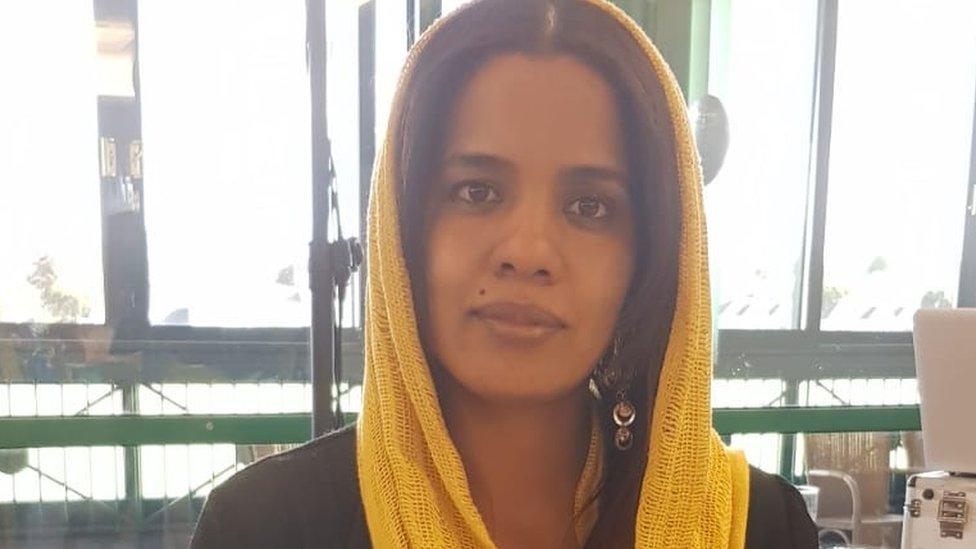
Misaa Osman was a business student at university before she left Sudan to join her husband
Misaa Osman, Mr Elmubarak's wife, left Sudan with the couple's three children in 2010 to join her husband "because it wasn't safe". She became a British citizen on 27 November 2019.
Like her husband, this UK general election will be the first time in her life that she has voted. She said the last election in Sudan, for her, was in 1986 when she was two years old.
"It's [The UK electoral process] fair and gives anyone the right to say their opinion and vote for anyone you want," she said.
She said many things had surprised her, such as "people feel happy to go and be involved, not scared, no policemen or military".
"It's absolutely important to deliver and share your thoughts and build countries through opinions," she added.

'The most critical election in our lifetime'
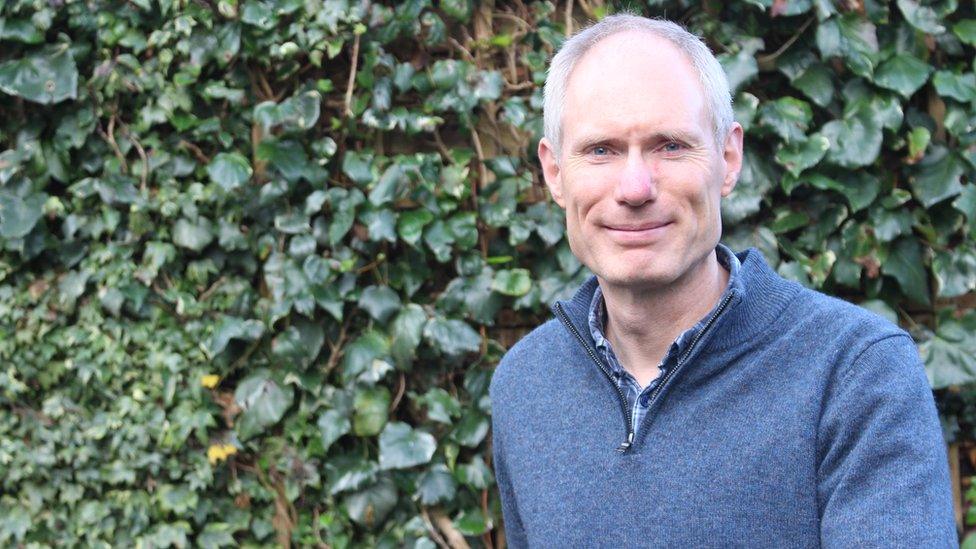
Dr Knut Schroeder said: "Locally, I feel reasonably well-represented by a couple of parties and candidates available."
Dr Knut Schroeder is a GP in Bristol who moved from Germany to the UK almost 25 years ago. He became a British citizen in December 2017, so this will be the first time he is voting in a UK general election.
"I applied for British citizenship mainly because I found it very frustrating not to be able to vote in the 2016 EU membership referendum and in general elections," he said.
"While I'm pro-European and see myself as a global citizen, I also wanted to become a British citizen because the UK is now my home, and I want to play a part in shaping the future of the country and people I love."
Germany has a mixed electoral system in which people have two votes: one for the candidate they want to look after their constituency, the other for the party they support overall.
Parties are proportionally represented in the German parliament, roughly according to their overall share of the vote.
"In Britain, with its first-past-the-post system, it's either winning or losing for candidates and their parties in each constituency," Dr Schroeder said.
"The first-past-the-post system can make it difficult for parties that often come second. It seems unfair to me that such parties are not proportionally represented in parliament," he added.
Dr Schroeder said important issues for him included "avoiding Brexit, addressing global environmental change and securing better funding for the NHS".
"It means a lot to me to be able to vote, because voting gives me a voice and allows me to have a say in the future of our country - and this may be the most critical election in our lifetime."

'Quite a moment in time'
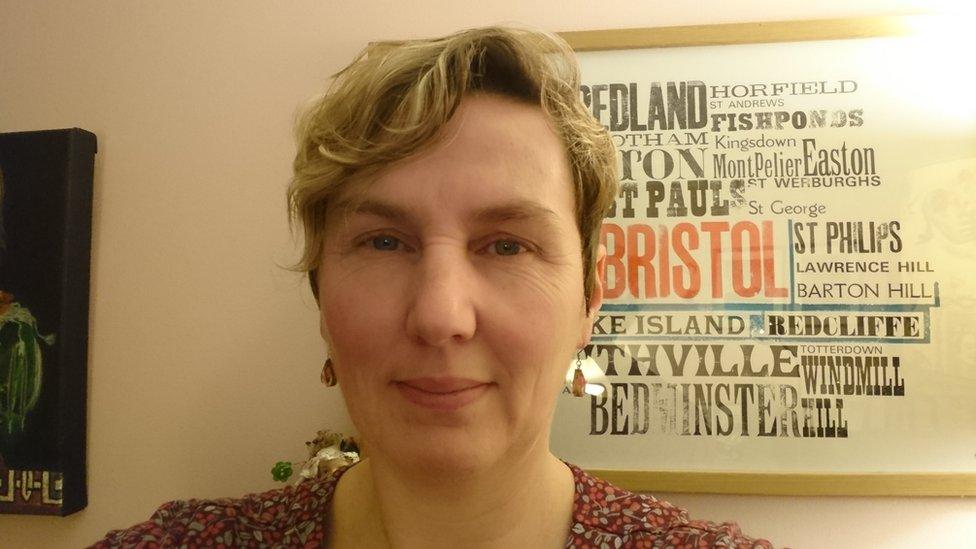
Issues important to Anne Mowat-Mulder include climate change, the NHS and education
Anne Mowat-Mulder has two jobs - one as a support worker and the other as front-of-house at one of the city's museums.
Ms Mowat-Mulder, who is Dutch, became a British citizen 18 months ago. She said the decision was "because of Brexit" and, as her daughter has British nationality, she wanted to have "the same passport as her".
"This is my first time voting in a British election. It's quite a moment in time," she said.
"I think it makes me feel much more a part of British life and hopefully I might get a bit more interested in British politics.
"It's probably about 25 years since I voted in The Netherlands. I think I've probably been a bit switched off from the whole electoral process, so it's quite nice to engage with it again."
Issues important to her include climate change, the NHS and education.
"I'm following cuts in special needs education and care as a parent of a child with special needs," she added.
Related topics
- Published30 August 2019
- Published8 November 2019
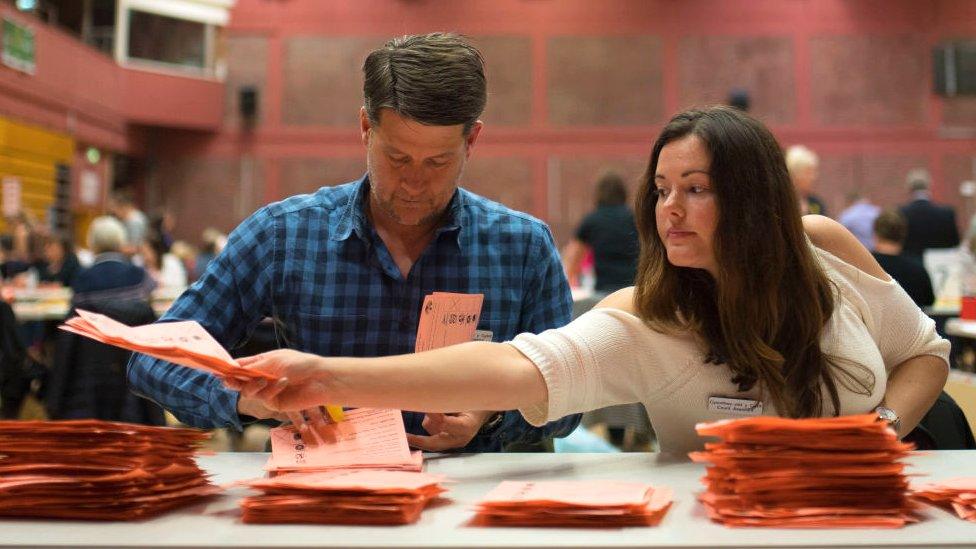
- Published6 December 2019
